|
One of the things I love about Catholicism is that we celebrate the mysteries of our faith in a physical way. Going to Mass, kneeling, standing, singing, receiving the Eucharist, hearing and proclaiming the Word of God, experiencing community after Mass or at parish events. Some of our liturgical feast days even emphasize the physical contact between us and the Divine. Think of reverencing the wood of the Cross on Good Friday or participating in a Eucharistic procession on Corpus Christi. Our faith is incarnational, and our bodies are important conduits for worship. That’s part of the reason the last several months have been so difficult for so many. These physical elements of worship have been—largely—unavailable to us because of COVID-19 and the practice of physical and social distancing. Most of us have also been physically disconnected from our communities of faith, friends, and family. We’ve missed important events like birthdays, retirement parties, and even funerals. The emotional, spiritual, and psychological effects of this separation are very real and very serious. And it’s been clear from the outset of this pandemic that the Church must take action to alleviate the impact of isolation, despair, and loneliness caused by this pandemic. But who will lead the charge? I find myself asking, what is the Church going to do about it? How will we get through this? And then I realize, the Spirit is calling me. And, friends, the Spirit is calling you too. We’re not being called to wait around while someone else figures it out. God is calling us to figure this out together. We must remember that we are the Church on earth, and we are being invited by the Spirit to cooperate with God’s grace to take action and serve others, right now. We can’t simply wait for someone else to help. Those of us who are baptized are called to be missionary disciples and, ultimately, saints. And this call comes with a personal responsibility to recognize that all our lives are interwoven as branches grafted onto the Vine, as various parts of one Body (1 Corinthians 12). We are connected to one another through our baptism into Christ. Paul says, “The body is not a single part, but many.” And because of this interconnectedness, when one part suffers, the whole body suffers. So, we’ve got to do something about that, because we’re called to be “doers”. We are all suffering in some way during this pandemic. It’s not even possible to downplay that. And we all feel one another’s burdens. We especially feel our personal stresses and anxieties, day in and day out. I believe one of the answers to this anxiety and suffering is the beautiful work of spiritual accompaniment. The call to spiritual accompaniment is incarnational and based on the love of Christ. Spiritual accompaniment urges us out of our own interior world and presses us to walk with our brother or sister in whatever situation they might find themselves. Pope Benedict XVI says that God’s love for humanity is so strong that “it turns God against himself, his love against his justice” (Deus Caritas Est, 10). How, then, can we demonstrate a reflection of this great, personal love to one another if we can’t be physically present to one another? I believe we must be creative and find ways to communicate our companionship to one another in meaningful ways. We can allow ourselves to be challenged by these questions while we reflect on this topic: Do I have the ability to be present to my suffering neighbor in any way today? Do I have the capacity to do charitable spiritual accompaniment during this pandemic? I believe one effective way to spiritually accompany others as we remain physically distant is to ask challenging questions of others and engage in honest conversation. Though this may seem simple, “faith sharing” is a powerful way to be witnesses of God’s presence, and we all need to be reminded of God’s presence these days. I think there are two simple, penetrating questions that can start fantastic spiritual conversations that open our eyes to the great works of God. They are:
The answers to both of these questions reveal our hearts, our spiritual yearnings, our joys, and our sorrows; the answers to both of these questions lead us to recognize God’s presence among us, either by contemplating where we’ve seen God or petitioning His aid through prayer. I want to challenge you to invite a friend or someone you’re close with to consider these questions and then to hear their answers. Perhaps you’ll be surprised at the way the Spirit guides the conversation. I believe that through this simple practice of spiritual accompaniment, we will grow closer with one another, though distance or politics or ideologies may keep us apart. Loving and holy conversation is one way to begin healing the wounds caused over these last several months, and it is one way to accompany one another on the road as we travel strange, new paths together. To learn more about spiritual accompaniment, please click here. For more resources to deepen your faith during COVID-19, please click here.
0 Comments
“Death and life are in the power of the tongue, and those who love it will eat its fruit.” Proverbs 18:21. The definition of the word “communication” from Webster’s dictionary is: “to share or impart information.” I look at this word and see a whole lot more. Com = come and commune = to communicate intimately. Communication can be defined as people coming together intimately to share information of all kinds. Coming together or communing is a very personal act, requiring the openness of individuals to both share information as well as receive it. This is where the very act of communicating becomes challenging. We are diverse as individuals and have a multitude of ways of perceiving what is communicated, as well as varying ways of imparting our ideas and information. When we speak to another, we do not just simply use words. We use tone, inflection, and body language. Because of all this, we can relay information in a positive or a negative manner. Keeping this in mind, it is essential to be very intentional and aware of how and what we communicate at all times. Ephesians 4:24 is plain in its instruction: “Do not let any unwholesome talk come out of your mouths, but only what is helpful for building others up according to their needs, that it may benefit those who listen.” As Christians, we want to always strive to build up and encourage with our communication. I’ve found that for communication to be successful, there have to be some ground rules. This requires that we be intentional people of prayer who ask for wisdom and understanding. Praying also helps us to be reverent, respectful, and open. Colossians 4:6 tells us “Let your conversation be always full of grace, seasoned with salt, so that you may know how to answer everyone.” This is a tall order for mere humans, which is precisely why we need God working in and with us. Our words can be blessings or weapons in any of our relationships. God calls us to love Him and our neighbor as ourselves – to serve in humility and love. Our speech has to align with this, the greatest commandment. As Proverbs 12:18 says, “The words of the reckless pierce like swords, but the tongue of the wise brings healing.” What we say and how we deliver it reveals the spiritual battle we are engaged in. Our purpose in speaking should always be for the good of the recipient. There are so many things we wish to impart to others in our daily lives: instructions, encouragement, advice, exhortation, expressions of love, thanks, concern, correction. The list is endless. However, a quote attributed to St. Francis of Assisi sums up communication in a beautiful and profound way: “preach the Gospel always, and if necessary, use words.” What that means is that our goal should be to impart all that Jesus taught us through acts of love and mercy, and when we have exhausted our actions, then use words. I realize it is necessary to speak for many important reasons, but it must always be done in respect of the dignity of the recipient, aware that they are a child of God and always desiring the best for them. Since this is a challenging task, we must seek the help of the Holy Spirit and also holy people who can assist us in learning the best manner of speaking to others in all types of circumstances. It is not something we are just born with the ability to do. It comes with prayerful guidance and lots of practice. James 1:26 reminds us “Those who consider themselves religious and yet do not keep a tight rein on their tongues deceive themselves and their religion is worthless.” Another element of communication is discerning when it is appropriate to speak and when to remain silent. I don’t mean ignoring another or refusing to talk. I mean weighing what you ‘feel’ or ‘want’ to say versus what is ‘right’ and ‘necessary’ to impart. “The heart of the righteous weighs its answers, but the mouth of the wicked gushes evil,” Proverbs 15:28 continues. This requires each of us to spend a good amount of time in quiet prayer each day in order to be in an open disposition to receive wisdom and understanding about what to communicate. From there, we must pray for the grace to ‘commune’ with the recipient of our information in a loving and Godly manner. When we nurture a consistent prayer life with the Lord, we experience peace that guards our minds and hearts. Because of our woundedness and fallen nature, the world and the devil’s designs, we struggle in this area and need the guidance of the Holy Spirit to be communicators that build up, encourage, and love through our words. In our fractured world, when people are attacking each other on all fronts about every issue imaginable, we as Christians need to be conduits of peace when we communicate. Praying for the desire to express love in everything we do will benefit us when we communicate and when we are receiving communication from others. We must grow in self-control and patience so that our communication will be positive, even in the toughest conversations. As Christians working to build the Kingdom of God, we must allow the love of Christ to flow out of us in all our actions and in every word we utter. We can come together with others and share information in many beautiful ways. God gave us voices for this. Let us always be in deep communion with God who loved us into being and calls us to be relational in order to share His love and build His kingdom on earth! Let Psalm 141:3 be our daily prayer: “Set a guard over my mouth Lord, keep watch over the door of my lips.” To read more about charitable communication and evangelization, we invite you to read Choosing to Believe in Another’s Best Intentions or Communicating Like Chrysostom: Growing Your Skills in Speaking for the New Evangelization. Recently, my husband and I attended a virtual Catholic Marriage Summit called, “Joyful Ever After.” Several of the speakers mentioned the importance of cultivating the virtue of believing in your spouse’s best intentions rather than assuming ill will when a perceived grievance is committed. I thought back to a time when my husband and I were dating long-distance. He texted me that he would be arriving late to see me, which was very unlike him. I was a bit sassy in my response. What I didn’t realize at the time was that he was late because he ran into traffic while buying me a surprise bouquet of flowers. A podcast I listen to addressed this same predicament when we interpret our children’s actions before we know their true intentions. The mom on the podcast shared how terribly she felt after becoming upset with one of her children for making a mess of crafting supplies only to find out her child brought out the materials to make her a love note. Encounters like these provide us with opportunities to choose love. Making up stories in our minds that may not be—and most of the time are not—true does more harm to our relationships than good. Assuming good intentions from our spouses, family, friends and co-workers allows us to foster and strengthen relationships. Doubting someone else is a way of protecting ourselves. God is the one who gives us courage to trust others and give them the benefit of the doubt. Being less defensive makes others more receptive. Opening ourselves up to another allows us to share the hope and joy of the Gospel. We become more likeable, less distracted by imagined problems, focused on the actual issue, and are overall happier. After all, God gives us a second, third, fourth and ultimately infinite chances in response to our shortcomings. As James 2:13 says, “For the judgment is merciless to one who has not shown mercy; mercy triumphs over judgment.” Training our minds to think of others and the best intentions they have can both help us and improve our relationships. In many occasions, the person we are interacting with may be reacting from a previous interaction that overflows into our relationship with them. By keeping an open mind without judgement, we allow the Holy Spirit to enter our hearts so that we may reach out to the other with empathy and love. This serves as a reminder to us of our own humanity and imperfection. Believing in another person’s best intentions is an act of faith. To foster this line of thinking in my own marriage, every day I try to share something I’m thankful for about my husband. I try to think about this during prayer as well to help develop gratitude. When I don’t understand something that my husband is doing or has done, I try (very hard!) to ask open-minded questions in order to open dialogue instead of shutting the conversation down or arguing. Some other ways we can seek to see the best intentions in others are: asking for clarification, listening to what’s being said rather than waiting to share our own thoughts, and refraining from editorial comments that could aggravate the situation. During these unusual times, we could all benefit from more compassion and grace. Let us open our hearts and minds to seeing the best in others. For more resources on Marriage and Family, please click here. For more resources to accompany you through this time of COVID-19, please click here. I watched her curly little head bounce away from me further down the hiking path and around a bend, out of my sight. I knew her older brothers would slow down so she could keep up with them, taking her under their wings. In the midst of a global pandemic, the woods were a safe space, open and free from the danger that seems to lurk everywhere these days. Nonetheless, my heart rate picked up along with my pace. What if a stranger was on the path? What if she fell and got hurt? I couldn’t see the path ahead, and I was afraid. I hurried along, my anxiety increasing as my steps forward failed to lead me to a view of my children. My thoughts turned dark while the woods around me became bright. Trapped in my own head, I failed to notice the sun breaking through, filtering light through the treetops. Until—there! The sunshine reflecting off of my little girl’s sequin covered sneakers allowed me to catch a glimpse of my babies. “Red light!” I yelled, in our family shorthand for “stop-moving-your-body-immediately.” The birds scattered, startled. My children froze in place as they waited for me to catch up with them. As I knew they would be, the boys were watching closely over their little sister. Taking her by the hand, they coached her through the mud and over the fallen branches. “See, Mama? Pretty!” my curly little girl exclaimed, joyfully depositing semi-crushed wildflowers into my hands. After rubbing her nose against mine, she joined her brothers on a moss-covered log, not registering my fear for even a moment. Exhaling a sigh of relief, I praised God in joy for great big brothers, my safe little girl, and a Father who is Light, illuminating the way. In this season of uncertainty, I find myself living that moment on the hiking path time and again: rushing forward, afraid, unable to see what is ahead. My days are filled with research and passionate conversation about schooling, and what the right choice for our family will be this fall. We deliberate over each barbecue invitation and mourn the loss of birthday celebrations that will never come to life. Parenting in a season where change is the only constant is overwhelming. I’m living that moment on the hiking path again: where I could not see, there was light. Though I was afraid, the Father was before me, protecting my little ones. So now, instead of remaining trapped by my thoughts, I am pursuing His power and protection. I am practicing seeking the light. In his letter to the Colossians, St. Paul reminds us that we can live in joy even in the midst of hardship, and he shows us how: “[We are] strengthened with every power, in accord with His glorious might, for all endurance and patience, with joy giving thanks to the Father who has made you fit to share in the inheritance of the saints in light. He delivered us from the power of darkness and transferred us to the kingdom[...]”(Colossians 1:11-12). Joy is a pursuit. By God’s great mercy, we are called out of the darkness and into the light. We are invited to share in the inheritance of the saints, if only we can pursue His power and glorious might instead of depending upon our own. When left to myself, I abandon joy for the hopelessness and despair that seems to permeate the world during this pandemic. However, when I pursue the heart of Christ, I am promised endurance and patience. I am equipped to face the reality of a sick and broken world and to remain unbroken by its weight. In His power alone, joy still abounds. Joy is a practice. Turning hands full of crushed wildflowers to praise comes with intentionality. So: let us train ourselves to joy. When we feel the dark closing in on us, we are called to joyfully give thanks to the Father and to seek His fingerprints that so graciously mark our lives—to acknowledge His many gifts. When the trees block our view, let us enjoy the sunshine filtering through their branches. When the path is rocky and unsure, let us acknowledge that He walks alongside us, and before us. When we suffer through sickness, hardship, and isolation, let us hope in God who has overcome suffering once and for all. This is joy. Grace-filled moments of contentment, happiness, peace, safety, and hope that we open our eyes to experience, even in the midst of the dark. Where happiness is fleeting and circumstantial, joy is ours to keep no matter the circumstance. Along this path I will stumble and fall. Joy will evade me as I am burdened by fear and uncertainty. But I will allow the Lord to raise me up, seeking the joy He offers me despite my skinned knees. Like my curly girl, I choose to trust that I am not alone. I choose wildflowers and light. I chase joy.
If you’re used to communicating with others via text message, then you’ve probably, at some point, received a message and interpreted it out of context. A curt reply with a period at the end could be misinterpreted as either passive aggressive or as an irritated response. This happens to me occasionally, and I always have to remember that without hearing a person’s message verbally, it can be difficult to understand what they’re really saying or implying. Maya Angelou’s quote rings true here: “Words mean more than what is set down on paper. It takes the human voice to infuse them with deeper meaning.” Our voices add a unique depth and fullness to our communications by revealing emotions, nuances, and subtle meanings more sharply than words alone can communicate. On this feast of the Nativity of St. John the Baptist, I am struck by St. Augustine’s words from this morning's Office of Readings: “Today we remember that Zechariah’s ‘tongue is loosed because a voice is born.’” St. John the Baptist was born to be the final prophetic voice who proclaimed the Word made flesh. Like the Old Testament prophets, John foretells the coming of the Messiah and calls sinners to repentance with words that cut to the heart (Luke 3:1-29). But, unlike the Old Testament prophets, John identifies the Messiah for the first time in salvation history. John points Jesus out and encourages his followers to pursue him (John 1:29-37). He is confident that his cousin is the foretold Christ, and by his proclamation John fulfills the mission of all the prophets as he straddles the boundary of the Old and New Testament. John’s historical mission of giving voice to the Word is also our mission. At our baptism, we were anointed as a priest, prophet, and king. We share uniquely in Jesus’s ministry, and we are called to be lay prophets who proclaim the good news of repentance and redemption. We must, like John the Baptist, spend time coming to know the promises of the Messiah so that we can recognize Him when we see him. And when we see Him present in the sacraments, or when we encounter Him as we are accompanied by a spiritual mentor, or when we experience Him through the fullness of our prayer, we must point Him out for all to see. To fulfill our baptismal call to be prophets of the Gospel of Christ, we must give voice to our experiences of God. John’s words must be our words to the world, “Behold, the Lamb of God.” With everything going on in the world, it can be hard to focus on having shared and special time with a spouse. I encourage you to view this time as an opportunity to focus on making special time together a part of your schedule. When have we ever been confined within the same walls for longer than a couple of weeks? When have we ever found ourselves spending this much time with our loved one? During this quarantine, it is very easy to feel stuck in the rhythm of getting up, going to “work” in areas of the house, or even sitting in the same places on the couch day after day. You may be bored of this quarantine, but you don’t need to be bored of your spouse! Below are some ideas for you to try to make sure you don’t fall into boredom in your marriage!
My hope for you all is that you continue to seek each day as a new beginning together. You’ll fight and argue, there may be tears, there will be emotions, and you may not agree. But know that through God, all things are possible and even a joyful marriage in quarantine is possible if you work at it each day. Marriage is no picnic, but you can go on picnics together. Best of luck, I’m praying for you! For more resources on Marriage and Family, please click here. In the past few months, most of us have had to confront loss. Some of those losses have been very visible and salient, costing us our jobs, loved ones, and financial security. Others have been less tangible, and yet still impact large parts of our lives: important events have been placed on hold or canceled, relationships have been strained due to distance, and the feeling of having things to look forward to has dissipated. In the aftermath of stay-at-home orders and the pandemic, those of us with these less visible losses might find ourselves minimizing the pain or disappointment we feel. We might compare our smaller losses with those who have undoubtedly encountered more suffering than we have. We may feel that compared to others who have lost jobs, loved ones, homes, or security, we have no right to feel sadness, anger, or disappointment. We might even be preventing ourselves from experiencing grief. Grief is something natural to our human journey. Like other emotions and emotional processes that we experience as human beings, grief provides us with information to our minds and bodies so that we can survive. In the face of loss, grief serves the purpose of communicating to us that we have encountered a lack of something that was formerly present and available to us. Whether it is the loss of a loved one, job, role on a team or in a workforce, friendship, feeling of security, or a sense of hope, grief helps communicate to us what is most important in our lives. In other words, grief helps inform us regarding what we set our hearts on and what brings us joy and safety. Grief not only touches the realm of the emotions and the psyche; it also is essential to our faith tradition. In Scripture, the words of grief are especially echoed in the psalms: “My tears have been my bread day and night, as they ask me every day, “Where is your God?” Those times I recall as I pour out my soul, When I would cross over to the shrine of the Mighty One, to the house of God, Amid loud cries of thanksgiving, with the multitude keeping festival. Why are you downcast, my soul; why do you groan within me? Wait for God, for I shall again praise him, my savior and my God.” (Psalm 42: 4-6) We even see Jesus grieve several places in the Gospels, such as at the death of his friend Lazarus (John 11:35), and even at the suffering he was to experience to carry out our salvation (Luke 22:44). In Catholic funerals, we name and acknowledge the reality of grief in our prayers during our liturgical rites—an important part of believing in and living with Paschal hope. Grief is not just an emotional process for death or large losses. While it is important to keep a clear perspective about the magnitude of the losses we experience in comparison to the suffering of others, grieving the less tangible and visible losses we experience is an important step to healing and cultivating our mental and emotional health. Additionally, ensuring that we allow ourselves to experience grief, even in response to comparatively smaller losses, can help us grow in holiness. Experiencing grief can help us to find new meaning in our faith, deepen our relationship with God and others, and continue to grow in knowledge of ourselves before God. So, how are we to allow ourselves to grieve the smaller losses we have experienced in recent months? What are some ways to grieve the rescheduled or canceled graduations, weddings, and festivals, or the lack of opportunity to do the things we enjoy or to spend time with people whom we love? Emotional Processing vs. Emotional Bypassing Instead of dismissing ourselves or invalidating the emotions we are experiencing (also known as emotional bypassing), we can allow ourselves to grieve more fully by feeling our emotions and asking questions about what we feel, otherwise known as emotional processing. For example, instead of dismissing how we feel by thinking, “It could be worse!”, it is more helpful to our healing to ask questions such as “What is my sadness and anger telling me about what I love or what’s important to me?” In acknowledging our pain and asking ourselves questions about how we feel, we can grow in self-knowledge and self-understanding about the way in which God has created us. We can also engage in processing with a trusted friend, mentor, or mental health professional. Allowing Physical Release Grief, like other emotions and emotional processes, makes itself known in our bodies. Physical pain, muscle aches, clenched jaws, and a racing heartbeat can all be caused by grief, stress, and anxiety. It is important to process these emotions physically so that they do not remain stuck in our bodies. Breathwork, exercise, crying, and movement allows us to feel grief and allow it to process through our body. Journaling, since it requires movement of the hands, is also a helpful tool for engaging grief through our bodies. Authenticity in Prayer We are the beloved children of God; God looks upon us with love, care, and concern with whatever we bring to prayer. Talking to God honestly about our disappointment, sadness, or anger brings us closer in relationship with God. In prayer, God is not judging us for what we do or do not say. For this reason, we can be totally authentic with God in prayer. We might feel like we should have a different emotional response to our losses from what we are experiencing, but God’s love is unconditional and infinite: we don’t have to worry about appearing perfect before God. Grieving the large and small losses of the last few months is not only important, it is human. How can we enter more deeply into our grief to find healing? What in our lives do we need to grieve?
I would like to begin this monthly recollection talk by stating the reason why I was chosen as the preacher. Owing to the current situation of the Coronavirus pandemic, the preacher chosen for this monthly retreat, Fr. Louis Caruna SJ, Dean of the Faculty of Philosophy at the Pontifical Gregorian University (Rome), was unable to come. Incidentally, two weeks ago, I had written - in Polish - an article on Pallotti's commitment during the cholera epidemic in Rome in 1837. The rector of our community had obviously seen it, and had probably read it, so he asked me to develop it a bit more and then deliver it for the recollection. Thus, I now stand as the ‘extra cog’ – a cog as significant as the real cog for any machine, even for the machine called ‘the community.’ The following four texts served as the main sources for my reflection. They are: Francesco Todisco, San Vincenzo Pallotti: Profeta della Spiritualità di Comunione; Francesco Amoroso, San Vincenzo Pallotti: Romano; the ancient but the excellent Dizionario di Erudizione Storico-Ecclesiastica by Gaetano Moroni; and the letters of Pallotti. The 1830’s, especially the years between 1835 and 1837, were years of great suffering for Europe because of the cholera epidemic, which was then known as the ‘Asian epidemic’ because it had originally come from India (part of today’s Iraq). In previous centuries, epidemics spread from city to city starting from port cities such as Civitavecchia, Genoa and Naples. The cholera epidemic began differently when it reached some Baltic countries, such as Poland, as early as 1831. Then in 1832 the epidemic reached England; in 1833 it was brought to Ireland, Portugal and the Netherlands. It then spread to France in 1835. As the epidemic was spreading, it left behind a long trail of death (Moroni, 233-243). The spread of the disease was quick. In Italy, the first epidemic deaths occurred on September 13th, 1835. As a preventive measure to preserve the Eternal City from the disease, Pope Gregory XVI ordered, without any delay, the exposition of the most distinguished Christian relics for the common veneration in the churches where they were present. Here I want to specify the relics considered to be important for common veneration both in times of solemn and difficult occasions in 19th century Rome. These details are taken from Moroni’s book (Dizionario di Erudizione Storico-Ecclesiastica). They were: · The skulls of the apostles Peter and Paul in the Lateran Basilica; · The holy face of Veronica and the finger of St. Peter in the Vatican Basilica; · The body of St. Pius V in the Basilica of Saint Mary Major; · The Wood of the Cross and the Thorn of the Crown in the Basilica of the Holy Cross in Jerusalem; · The scourging pillar in the minor Basilica of St. Praxedes (Basilica di San Prassede); · Two celebrated crucifixes – one in St. Lawrence in Damaso (a minor basilica) and the other in the church of St. Marcello al Corso; · The imprisonment chains of Sts. Peter and Paul in the Basilica of St. Peter in Chains; · The arm of St. Roch, the protector against the plague in the church of St. Roch in Lungotevere, Ripetta; · The arm of St. Francis Xavier in the church of Gesù (the mother church of the Society of Jesus); · The bones of St. Sebastian in the minor basilica of St. Andrew of the Valley (San Andrea della Valle). Pope Gregory XVI also ordered the celebration of an extraordinary novena to be held from August 6th-15th, 1835 in all the fifteen churches dedicated to Mary [in Rome] in preparation for the feast of the Assumption of Mary, By July 31st, 1835 the Cardinal Vicar Odescalchi had published a decree L’invito Sacro (The Holy Call), which was fixed on the doors of all the churches. However, this document does not have much in common with the decrees issued by Cardinal Angelo De Donatis (also posted on church doors) on March 8th, 12th, and 13th, 2020. The decree signed by Cardinal Odescalchi reveals the 19th century mentality regarding the epidemic. I will cite a few lines: A fatal disease, which for the obscurity of its origin, for the extravagance of its progress, for the uncertainty of its attacks, appears for the believers, to have the features and signs of a scourge. Will Rome be immune from it (dispensed from it)? Oh! Romans, do not delude yourselves! Yes, Rome has failed its duty. The Holy Name of God is trampled on; feasts and solemnities are desecrated, and with what an insolence the vice roams the streets of the Holy City! So if Rome has failed its duty, it must again be scourged. Oh! Unhappy Rome, only with MARY covering the city with her mantle, the arm of the Angel of End Times that is waiting to empty the poisonous cup on the poor guilty children, can be held back. So, let us all turn to MARY. Cardinal Vicar Odescalchi had some concrete proposals. On the positive side, there was the announcement of an extraordinary novena for the occasion of the feast of the Assumption of Mary in all the fifteen churches dedicated to her. On the negative side, many public gatherings were also forbidden. Specifically, during the period of the novena, taverns, places selling alcohol and most other places of entertainment were all closed. The one exemption was coffee shops. The great Roman poet Giuseppe Gioachhino Belli composed numerous sonnets expecting to exorcise the city of the impending arrival of the virus. Some of the letters of Pallotti from this period of time reveal that he was committed to promoting the initiatives announced by Cardinal Odescalchi. Another preventive and interesting initiative started by Pope Gregory XVI was the procession with the icon of the Madonna Salus Populi Romani - that is "Salvation of the Roman People" (some translate as "Protector of the Roman People"). In fact, the pope had ordered that on September 8th, 1835 the icon of the Madonna Salus Populi Romani should be carried in procession from the Basilica of St. Mary Major (Santa Maria Maggiore) to the Vatican Basilica (San Pietro). This is the famous icon, the icon par excellence of Rome (The icon of the Eternal City), that Pope Francis kneels in front of as he starts and ends each of his apostolic journeys. The icon Salus Populi Romani has a very close connection to the history of the Eternal City and the Supreme Pontiffs. It is believed to have been painted by the St. Luke the Evangelist and it was seen as the reason for victory against epidemics and plagues as well as the reason for many other miracles. Il Diario di Roma, a periodical of the time, explained that the pope had ordered the procession to “assure the souls of the powerful protection of the great Mother of God who regards with delightful eyes this Seat of Christianity [Rome].” Unfortunately, the procession in which the pope walked barefoot was accompanied by such bad weather that this icon of the Virgin Mary was forced to stay for eight days in the New Church (Chiesa Nuova also known as Santa Maria in Vallicella). The return journey of the icon from St. Peter’s Basilica to the Basilica of St. Mary Major was also disrupted by bad weather. In its return journey, the icon Salus Populi Romani had to stay for a long period of time in the Church of Gesù. It finally reached the Basilica of St. Mary Major on September 30th, 1835. The Spread of the Epidemic: The Report of the Physicians, Newspapers and the Church: In Rome, the medical practitioners exhorted people not to be afraid and not to worry. They also forbade the public from talking about deaths and burials, believing as if optimism and joy fortified people against the attacks of cholera. In addition, the medical practitioners urged people to keep their homes very clean. The General of the Society of Jesus, Fr. Jan Roothaan (whom Pallotti knew very well), had personally vowed to celebrate the feast of The Immaculate Heart of Mary every year if the Jesuits in Rome who had given themselves generously for the care of the sick and were in the frontline fighting the contagion, were spared from the disease. Despite all these attempts, by July 1837 the fear of the epidemic had penetrated all social levels. On July 5th Fr. Vincent Pallotti began a Triduum of prayers with a particular intention seeking favors for the people of Naples, the port city where the epidemic had already penetrated. In the Triduum, Pallotti also blessed the food eaten by infected people so that they may be protected by God. On July 29th, Il Diario di Roma launched an attack on its front page on people who were spreading news about the cholera epidemic. It declared itself the right authority on the news pertaining to the spread of the epidemic and said: “[We] deny completely the ill-founded rumor already spread in Rome, that some individuals in the Capital had contracted the Asian cholera.” But the people knew better. They gave little credit to the journals. They knew very well that the newspapers and journals only intended to avoid panic in the city. On August 6th, 1837, the icon of the Virgin (Salus Populi Romani) was again brought in procession to the Church of Gesù. This event was recorded by Il Diario di Roma. According to the report, a squad of soldiers on horseback went before the procession and the procession itself was led by the pupils of the Apostolic Homes and Orphanages. Following them were members of the clergy with candles or torches. The clergy also took turns reciting the rosary. Next in the procession was the icon surrounded by some Jesuits. Everyone else was shut off by the Swiss Guards. The procession went around Via Quattro Fontane and Via del Quirinale. Pope Gregory XVI, the College of Cardinals and the senator of Rome (Prince Orsini – Duke Domenico) joined in the procession as it reached Via del Quirinale. Together, the procession moved slowly towards the Church of Gesù where the Madonna was received by the General and members of the General Curia of the Society of Jesus. The litanies were then sung, and the pope concluded the procession with the final blessing. On August 15th, a grand procession was organized from the Church of Gesù to bring the image of the Madonna Salus Populi Romani back to the Basilica of St. Mary Major (Santa Maria Maggiore). Acting on the exhortation of the Cardinal Vicar, Fr. Vincent Pallotti workedt to organize a sizable group of clergymen who would walk barefoot with him in the procession. The group started its journey from the Church of the Holy Spirit of the Neapolitans located in Via Giulia. To organize this group of religious and diocesan clergy, Pallotti made the best use of all his acquaintances. Pallotti wrote to Fr. Efisio Marghinotti, one of his friends and collaborators: “I ask you humbly, if possible, to inform many clergy of tomorrow’s barefoot procession. Also inform the Abbot Bianchini that even if he could not walk barefoot he could at least direct [the procession]. Tell everyone to get at least twelve others or more [for the procession]. We meet in the Church of the Holy Spirit.” (OCL II, p. 199) In spite of the efforts, the situation in Rome was not good. It is said that fear is the mother of all excesses. This was proved right. On the evening of August 14th, an English Language teacher was killed by a crowd of people near Piazza del Campid’oglio because the victim was believed to be an "anointer" who spread the disease by anointing people and things. The optimism advised by the medical experts was not of much use. Neither could the prayers contain the natural course of the epidemic! Finally, on August 19th, 1837 Il Diario di Roma admitted what was already evident. It said that according to the opinions of the medical doctors, the Asian Cholera had entered Rome. By the beginning of September, the Count Antonio Maria Plebani, who was residing in the region of Marche but whose son was studying in Rome, had already sent a letter filled with grievances to Pallotti. In the letter, he affirmed that there were reasons to worry this time: “cholera, earthquakes, wars, hunger …” Fr. Vincent Pallotti replied saying: “Let us seek God. Let us seek Him always and in all things. And we will find Him and in Him we will all be saved.” (OCL II, p. 206) Meanwhile, in the same period of time, Giovanni Marchetti, a married lay person and a collaborator of Pallotti from Gubbio, wrote to Pallotti asking how he could escape the epidemic. Pallotti replied advising him not to escape from God, but to look for a way to not merit punishment of God. Pallotti wrote: “Hold firm to the maxim that there is no escaping from the Divine scourge. In order to not deserve it, it is better to attend to one’s proper duties.” (OCL II, p. 208) Pallotti’s Response to Cholera: Let us now look at the response of Pallotti to the cholera epidemic. Inside the Church of the Holy Spirit of the Neapolitansthere is a plaque with an inscription bearing the works undertaken by Pallotti as the rector of the church. The inscription reads: “From 1835 to 1846, St. Vincent Pallotti, the Roman priest, was the rector of this Church of the Holy Spirit of the Neapolitans: · He founded the Union of the Catholic Apostolate. · He founded a College for the Foreign Missions. · He celebrated the First Epiphany Octave. · He celebrated the Marian Month of May for the clergy and the faithful. · He animated the spiritual conference of the clergy. · During the cholera epidemic of 1837, the people of Rome recognized in him a holy priest and in his work ‘an apostolate of charity’. In fact, during the cholera epidemic, the action of the clergy in general was exemplary. Pope Gregory XVI, who himself was old, made visits to hospitals, thus setting an example for the clergy. We should not be surprised, therefore, that during the epidemic, the charity of Fr. Vincent Pallotti and the members of the Union emerged in a special way to assist the needy in every part of the city. Already by August 19th, Pallotti requested the ministerial faculties for the forgiveness of reserved sins for his collaborators Melia and Michettoni. He asked for them in order: “to satisfy the multitude of penitents, who in the current circumstances approach the Holy Tribunal of penance in the Church of the Holy Spirit of the Neapolitans.” (OCL II, pp.200/201) Fr. Vincent Pallotti was fully committed – among many things - to assisting the sick and helping their families and also spending many hours in the confessional. Sr. Maria Colomba (a future Pallottine Sister) testified in this regard: "Several times I have seen him [Pallotti] in surplice and stole following the hearse that carried the dead." Here is another example: shortly after the end of the epidemic, Pallotti wrote to Mr. Cassini Tommaso apologizing that he was not able to visit a certain prisoner. Mr. Cassini Tommaso had asked Pallotti to visit the prisoner in Castel Sant’Angelo (The Mausoleum of Hadrian). Pallotti could not visit the prisoner because of the other works necessitated by the epidemic. “When at last I went – writes Pallotti – the person was no longer there.” (OCL II, p.234) In order to respond to the numerous appeals that Pallotti received, he divided the city into sectors, and entrusted the sectors to the members of the Union of the Catholic Apostolate. He wrote shortly after: "In the time of cholera, The Pious Society placed a small box at the entrance of the sacristy of the Church of the Holy Spirit of the Neapolitans. And it was accessible to all the poor. It was enough that the poor person wrote in a small piece of paper the name, the surname, the place of residence, the name of the parish, and the person’s need and placed it in the box. Then, two by two, the priests went to the place of the poor and cared for their needs.” (OOCC V, 139/140) The members of the Union sought to help according to the need of the place or person; some helped with clothing and others with coupons for bread and meat; some helped bring lemons to cholera patients since lemons were then considered to be the most suitable medicine for cholera. Pallotti had noted this: “The priests of the Pious Society, night and day, went to the assistance of the cholera patients. The distribution of coupons for bread and meat had been a practice since the beginning of the Union in 1835, and continues even to this day.” (OOCC V, 139-140) At last, on October 12th, the epidemic had been contained and it was declared that the epidemic had been defeated. Rome alone reported 5,419 deaths out of the population of 156,000. Among the deaths were some people who were very close to Fr. Vincent Pallotti. One such person, Blessed Anna Maria Taigi, died of cholera on June 9th, 1837. In spite of her popularity, many medical doctors did not participate in her burial. They did so in order not to infect other people with the disease. In a letter written on June 9th, 1837, Fr. Vincent Pallotti communicated the following to Fr. Felice Randanini in Vienna: “In Rome, yesterday died in secret a great Servant of God, who had been showered with many extraordinary gifts.” (OCL II, p.183) The father of Pallotti, Peter Paul Pallotti, passed away on September 15th. He had gone to the New Church (Chiesa Nuova) to pray. There, he collapsed on the ground in front of the altar of St. Philip Neri. He was immediately rushed to his home. Even before Fr. Vincent Pallotti could arrive, he died. That same day, Fr. Pallotti dispatched three letters asking for suffrages in favor of his father "to whom I owe so much" (OCL II, 206/207) As the year 1837 ended, two other deaths marked the life of Fr. Vincent Pallotti. First was the death of Fr. Bernardino Fazzini, Pallotti’s confessor for thirty years, on December 25th (Christmas Day). Second was the death of Fr. Gaspar del Bufalo, Pallotti’s friend and collaborator, and the founder of the Missionaries of the Precious Blood on December 28th, the Feast of the Holy Innocents. A few days later, in a letter to Randanini, the Secretary of the Apostolic Nunciature in Vienna, Pallotti wrote: “Today, it has been nine days since the death of the great missionary and the canon Fr. del Bufalo, and twelve days since the death of the Chaplain of the Apostolic Hospice of St. Michael a Ripa [Fr. Fazzini]. Two great saints! Pray for me that I may gain from the examples, advices, and exhortations that they gave me with their lives.” (OCL II, 232/233) The Conclusion: The Monthly Retreat – Preparation for the Good Death: And finally, I would like to highlight a theme: the preparation for death. How many of you, today, ask yourselves about the purposes of a monthly retreat? When you do that, you will find that a monthly retreat is: · A nutritious aliment for prayer · A renewed self-dedication to God · A perfect and generous push into the apostolate · A growth in fraternal love They are all true and right, but traditionally, the monthly retreat had also been thought to be, among many other things, an exercise in preparation for death. Pallotti also speaks of it in the Rule of our Congregation. In other words, we can say that the objective of a monthly retreat is to prepare our mind and heart to face death, the undeniable reality! Firstly, we need to acknowledge it! Not just acknowledge, but we also need to overcome the fear of death. Thus, when death approaches, we will be better equipped to face it. Besides, acknowledging death would help us to appreciate our daily living by providing it with more meaning and richness. We give two examples. The First Example: It is taken from a letter written by Pallotti to a lay person, Luigi Nicoletti. Nicoletti was two years younger than Pallotti and like Pallotti, a Roman. But Pallotti had high respect for Nicoletti. Nicoletti died in 1851, just a year after St. Vincent Pallotti’s death. On September 20th, 1822 during his stay in Monte Compatri with the Carmelites, Pallotti had addressed a letter to Nicoletti. I now cite a large passage from the same letter: Yesterday, as the sun was about to set, the Spirit by the infinite Mercy of God led me on a high solitary mountain [probably the 773 meter high Monte Salomone [a mountain] that is located along the road that leads from the town of Monte Compatri to the town of Rocca Priora]. Isolated from human association, looking towards heaven, I lost myself in prayer. And as I prayed, I remembered you distinctly. In fact, God had shown me that you had not gained much from the letter that you received last year from the well-known, caring and considerate Jesuit. From the letter, it was quite frightening to know that your death was close. But it was not God’s intention that you always had the thought of death on your mind so that you lived every day as the day of your death. I humbly ask you, with my face on the ground, to promise me not to spend any day without having at least for a few moments meditated on the great Principle of Death. Do not believe that this means that your passage to Eternity is near, but I say this, so that by responding to the grace of God, you will increasingly enrich yourself with the merits for Eternity. (OCL I, pp.155/156) The Second Example: As the cholera epidemic was spreading, the anxious and apprehensive Fr. Felice Randanini, the Secretary of the Apostolic Nunciature in Vienna, wrote to Pallotti several times. He felt that he had contracted the disease (cholera). But Fr. Vincent Pallotti reassured him writing: “Look for cholera as much as you want, but you will not be able to find it because it is not for you.” (OCL II, p.139) The other times when the young secretary was caught up in fear, Pallotti eased his fear by foretelling that he would see the secretary again in Rome. Pallotti wrote: “About the fear of your death, I tell you: I wait for you in Rome.” (OCL II, p.138). Pallotti wrote another time: “Be calm: cholera will not find you.” (OCL II, p.140) The secretary, accustomed more to the diplomatic language and less to the prophetic language, wondered at the certainty with which Pallotti had spoken. Once the immediate danger was over, Pallotti asked him to humble himself and to seek forgiveness for his fears and his weaknesses in the time of distress. Pallotti wrote: “Always and in every situation, you must live and should be able to say with that spirit and with that firm belief with which the Apostle Paul said: Whether we live or whether we die, we belong to the Lord. Pray that the Lord grants me the same grace even though I am not worthy of it.” (OCL II, p.143) You, [dear friends] certainly remember these famous sayings of Pallotti: “Time is precious, short, and it never comes back. I would like that time is given a high regard. I would like to insert in the faithful the highest regard for the time.” (OOCC X, 594); “Time is precious, short and irretrievable. I would like that with the grace of God I made good use of the time like a person who had come back to life from death used it to redeem the past.” (OOCC X, 553) Dear confreres, the reactions in the face of death are varied and diverse. Some confuse awe with fear as Cardinal Ravasi said very recently, “and this is the most serious mistake one is likely to commit in this time of Coronavirus”. We need to distinguish between the fear and the awe in the presence of the Lord (‘Fear of God’). What is the difference between fear and ‘Fear of the Lord’? We can very well say that fear and ‘Fear of the Lord’ are not synonyms. “The thing I fear most is fear,” said the French philosopher Michel de Montaigne. He also defined fear as the ‘bad advisor.’ ‘Fear of the Lord’ on the other hand is ‘the beginning of wisdom’ (Prov 1:7). “Come, O children, listen to me; I will teach you the fear of the LORD.” (Ps 34:11) To describe the success of the early Church, St. Luke writes in The Acts of the Apostles: “The church had peace and was built up. Living in the fear of the Lord and in the comfort of the Holy Spirit, it increased in numbers.” (Acts 9:31). In fact, ‘Fear of the Lord’ actually brings about peace. And the paradox goes even further – ‘Fear of the Lord’ exists along with love. We read similarly in the Book of Deuteronomy: “So now, O Israel, what does the LORD your God require of you? Only to fear the LORD your God, to walk in all his ways, to love him, to serve the LORD your God with all your heart with all your soul.” (Deut 10:12) Fear, on the other hand, cannot be interwoven with love. Thus writes the Apostle John in his first epistle: “There is no fear in love, but perfect love casts out fear; for fear has to do with punishment…” (1 John 4:18) On the contrary, ‘fearful respect’ for God is the source of great trust and thus wins over the fear. It is now up to you (up to all of us) to allow this teaching to transform each one of us personally and to transform the life of the community. To learn more about St. Vincent Pallotti, please click here. For more resources on the COVID-19 pandemic, please click here. 3/31/2020 Altered States: Living With Adult Children During Coronavirus | COVID-19 ResourceRead NowAs parents in our early sixties, living in household with our 25, 23 and 19 year old adult children is proving to be an interesting challenge during this pandemic. We have successfully transitioned from training six little ones to launching three and sharing our household with the remaining three. Each of us lives what I consider ‘parallel’ lives under one roof. We all go to our respective jobs, enjoy our own friend groups, and participate in our specific extra-curricular activities, along with sharing family time together. It is a state of life that has forged a certain routine that is pleasantly habitable. Slam dunk us all into the middle of an unprecedented disease that turns our world upside down overnight – and our happy coexistence becomes challenged. We are forced to adapt to new schedules and new restrictions that we all must willingly cooperate with. Moving from government recommendations to ‘imposed sanctions’ is met with varying reactions from the five in our household. Those of us who are easily contented engaging in solitary activities are not so affected. We find new books to read, projects in the house or the yard, a nature series to watch, extra time to participate in the Chaplet of Divine Mercy, the Rosary and the Mass on tv. Those of us who are energized by hanging out with our peer group, attending public events, or going out to restaurants and pubs find these restrictions close to being imprisoned. Our foremost responsibility as parents during this uncertain time is to be very intentional in communicating with our young adults about the ‘rules’ and the ‘whys’ and the ‘wherefores’ of cooperating in a Godly manner to all of this. We speak daily of the importance of adhering to social distancing and the extra measures of hygiene and disinfecting while allowing our children to express their frustrations, share new information, and ultimately come to agreement to remain steadfast in cooperation when it is difficult. I can’t stress enough the necessity of speaking daily in a positive manner so that we all help keep each other accountable. Getting independent, self-sufficient young adults to operate from the same page is most definitely a tight rope act. I’m accompanying them in a way I never have before. It requires lots of talking and more listening. It necessitates creative ways of encouraging. Each family dynamic is different, but in my male-dominated household, what I have found brings us together is food. My plan these days has been to cook, cook, and cook some more! Preparing meals that satisfy and draw us together opens us to sharing our thoughts and feelings and encouraging one another with what we find most difficult. In our discussions, our adult children share their creative ways they have found to connect with friends and to cope with the temporary suspension of activities they regularly participated in. Our pace of life has slowed considerably. My job is on temporary shutdown, but everyone else still goes to their jobs on altered shifts with no work meetings. When they arrive home, I make sure a meal is ready and we talk and pray and relax together. They are quicker about getting their laundry done, and helping keep common areas of the house disinfected every day. This altered state of living builds character in each of us. We are being called to willingly forego engaging in activities we love for the greater good of our fellow man. Practicing restraint, perseverance, respectfulness, and kindness allows us to grow in holiness that builds up the kingdom of God. This witness promotes community and joy amidst the pain and devastation that is all around us. One activity we have purposely not engaged in during this pandemic is watching or reading the news regularly. We do not watch any major news telecasts and keep apprised of current affairs through government messages and the several medical people in our family. We choose not to obsess on what is happening hour by hour. Instead, we focus on praying, eating well, getting extra sleep, playing games, watching movies, reading books, and pursuing our hobbies in our home space. We essentially have created our own little bubble to weather this storm together while continuing to participate in our normal duties to the extent that complies with social distancing. We are fortunate to live in a digital age where we can access a degree of connectivity through our various devices and remain a safe distance apart. We were created to be relational. We do not want to live this way solely, but we have the privilege of being connected to others like no other time in history. So far, in our semi lockdown mode – no one has blown up at another, no one has a crazed look about them, no one has run away! We are all present and accounted for under one roof amidst significant life changes. Our home remains a sanctuary of harmony and peace. This altered state of living together is a fruit of ‘grace’ that I believe God is showering on us. He is equipping us as we pray with the virtues of prudence and perseverance. He is covering us with His balm of peace to behave respectfully and kindly to one another. I am mindful of my continued dependence on the Holy Spirit’s grace to guide me as a mother. My prayer is for parents everywhere to walk in faith with your children in the will of God and grow in peace and joy together, whatever the circumstances! As a human race, we have entered uncharted waters and new territory as we struggle to continue our lives in the midst of the coronavirus pandemic. Many of us have attended to socially distancing ourselves, picking up essential items from the grocery store, and ensuring that our loved ones are safe and supported. As Catholics, we’ve found creative ways to gather to celebrate Mass and pray with others all over the nation and the world. However, in the midst of giving attention to all of these demands, we might forget to take care of one crucial thing in particular: our mental health. As someone who lives with anxiety, depression, and other mental health issues, I can confirm that the presence of coronavirus and the changes it has wrought in my daily life are making it particularly challenging to cope. I find myself with racing thoughts: When will this be over? Will my loved ones and I be protected? How much will this affect my finances? Where even is God in this? This is why I am particularly invested in my mental health right now: the challenges of the pandemic have the potential to trap me in an endless state of anxiety, panic, and depression. Although the pandemic presents me with challenging days ahead, I know that I can survive them by taking extra care of my mental health. To take a step back, why should mental health matter to us so much as Christians, especially now? First, mental health allows us to live in right relationship with ourselves, others, and God. By cultivating mental health, we can strengthen self-esteem, learn how to be a more compassionate friend or partner, or learn how our human experiences have affected our relationship with God. Second, focusing on our mental health allows us to be stewards of God’s creation, specifically good stewards of the body that God has created and given to us. Though we are living in a time of panic and uncertainty, we have agency and the ability to take care of ourselves in a way that allows us to continue the hard work of bringing forth the Kingdom of God, even in a pandemic. Third, focusing our efforts on our mental health is bound up in our pursuit of holiness. As we focus on mental health, we grow in self-awareness, communication, compassion, and moral judgement; in other words, we engage in formation that allows us to be a “bridge and not an obstacle” (Pastores Dabo Vobis, 43) to Jesus Christ in our own lives and the lives of others. In other words, intentionally focusing on our mental health during this challenging time is a way in which we can follow the command to “love the LORD, your God, with your whole heart, and with your whole being, and with your whole strength” (Deuteronomy 6:5). In being intentional about my own mental health at this time, here are some thoughts and practices that I’ve found most helpful in coping with uncertainty, panic, anxiety, and depression:
How can you engage in practices that cultivate your self-awareness this week? What/who are valuable resources of support? How do you feel that you need to show up for yourself this week? Where could you use some extra self-compassion in your life? Finally, how might being intentional about cultivating your mental health bring you into right relationship with yourself, others, and God during this time?
Tyler and Emily Lomnitzer were married at the Basilica of St. Mary in Alexandria, VA on August 31, 2019. Fr. Frank Donio, Center Director, con-celebrated the Nuptial Mass. Tyler and Emily met at The Catholic University of America and were engaged on October 7, 2018. They currently reside in Trumbull, CT. 1. What was some of the most helpful advice you received from the Church, friends, and family during the marriage preparation process? Tyler: The Church, friends, and family all stressed the same thing: take marriage preparation seriously. Some aspects may seem routine, or you may feel like you are already an expert at budgeting, conflict resolution, prayer life, etc. No matter our age, our academic pedigree, our level of holiness, or our level of discipline, we are not experts in these fundamental aspects of life and relationships, and marriage preparation is the first formal step in working through these things as a couple. Emily: The most helpful advice I received was from married friends of ours. One friend in particular urged us to stay close to the sacraments during the marriage preparation process because of the potential for spiritual attacks during this time. The enemy does not want good Catholic marriages! It was helpful to know what could happen and to be careful to stay close to each other and to the sacraments the Church gives us. 2. What are a few things you have learned since getting married that would be helpful for other couples who are preparing for marriage? Tyler: It sounds so cliché, but stepping into the other person’s shoes. For example, my wife, as a professional singer, is home or alone a lot during weekday business hours, whereas I am in a corporate environment interacting with tens, even hundreds of people in a single day. When I come home, my wife is excited for human interaction, but I need some alone time. It took some time for us to recognize and adapt to this. We did that by stepping into the other person’s shoes. Emily: Communication is so important! Even if you have been dating for a long time, it is totally different being married and living with your spouse. Being open about your struggles as well as joys constantly is critical to getting through those first few months of transition. 3. How were you accompanied throughout the discernment process of marriage and throughout your engagement? How are you being accompanied now in married life? Tyler: We are blessed to have had friends in all aspects of life to lean on and be open with. It’s so important to not be afraid to grab coffee or a beer with some close friends and ask them some hard questions about marriage. During engagement, we leaned on the priest preparing us for marriage, as well as some newlywed couples. During marriage, we are leaning on our parents and close friends and colleagues who have unique perspectives on things like conflict resolution and learning the psychology and personality of the other while trying to grow personally in virtue, holiness, etc. Emily: Through our engagement, we were blessed with having many friends who were living out their vocations, whether as married people and parents, or as priests and religious. It was great to speak with them and get their perspective through all the good and bad parts of the season of engagement. And those same people have accompanied us into our married life! It is a blessing to be surrounded by people who are constantly striving to live out their vocations and going through life together as a spiritual community. 4. What has been the best part about married life thus far? Tyler: Honestly, just coming home after work and knowing that my wife is there waiting for me. We have these subconscious kindness battles where we are always trying to do more for, give more to, and love the other person more. When you take marriage preparation seriously, and work so hard to empty your being for your spouse, God’s graces become evident and elevate your relationship. Emily: The graces that come with the sacrament are so abundant. It is so remarkable! Getting to spend every day married to a person who loves and supports you so fully and working towards the same goal is so amazing. For more resources on Marriage and Family, please click here. As a communications manager who handles the social media accounts for my day job, I’ve had to work at and learn how to better manage my time spent on social media. While this technology is an exciting and ever-evolving resource for sharing and obtaining news, I’ve found social media can also drain my energy or keep me from my priorities. Within the last year, I noticed I was spending four or more hours a day on social media and browsing the Internet. I saw my spiritual life was being affected, so during this past Lent, I decided to do something about that imbalance. I knew I still needed social media for work use, and I discovered a solution. By implementing the screen time and do-not-disturb settings on my phone, I found I could limit my social media consumption to an hour per day. Whatever time was left after work allocations I could spend on personal social media time. Most days I used 45 minutes or the whole hour for work. I came to appreciate that my time was spent elsewhere in a more productive manner. I used the time for additional prayer, reading, church, conversations with friends, and other enjoyable activities. My brain didn’t feel as fuzzy and scattered with random bits of information that would send me off the paths toward my personal, professional, and spiritual goals. After Lent, I took off the screen time and do-not-disturb parameters on my phone due to an evening work event. Since then, I’ve turned them back on. This experience of self-reflection and adjustment of my behaviors reminded me of why God provides us with commandments: to set us free from sin in order to allow us to become more perfectly the people he created us to be. By growing in self-awareness and setting self-imposed boundaries, we can better harness social media for the good. Here are a few questions to consider that I have found help me when evaluating my time spent on social media: (1)Are you present to those around you? People using their digital devices when in the company of others is a growing trend – and a sad one at that. Instead, we should put away our devices and give our attention and time to those in front of us. Being fully present to those we are spending time with in-person shows that we are investing in our relationships and affirming their humanity. By being present to those around us, we respect them and uphold their dignity. (2)Do you let social media distract you from God and others in your life? Have you formed the habit of checking your phone every couple of minutes or felt the non-existent buzz of a notification? Have you moved to autopilot looking through your social media feeds or gone down the rabbit hole of an internet or video search only to see that one, three, or more hours have gone by? This reliance on our phones provides great distraction in our lives, making us susceptible to temptation. We should work to embrace silence with ourselves and with God. By scheduling solitude with God in prayer or time for ourselves to be constructive, we come to know God’s path for us and how he calls us to give of ourselves to others in love. (3)Ask yourself, “Do you really need to share this moment?” With 24/7 access to an inside look at our life’s daily moments through social media, we seem to have lost a sense of privacy and humility. Before posting content to social media, consider the discretion of the moment. Check with family, friends, and significant others if something including them is appropriate to post. Respect their space and yours. Ask yourself why you’re posting the content you want to share and check your motivations. (4)Do you view social media as an outlet that steals your happiness or as a way to share your joy? There is much truth to the adage, “Comparison is the thief of joy.” Comparing ourselves, our possessions, our appearance, our jobs, our wealth, and our relationships to those of others prohibits us from feeling gratitude for our blessings and can derail us from our personal goals. Thanking God for at least one thing a day can help cultivate a spirit of joyfulness, allowing us to celebrate, learn from, and be happy for others around us. (5)Do you feel isolated when spending time on social media? Social media can be a great way to connect with Catholic communities. Personally, I enjoy the discussions and fellowship that Facebook groups cultivate. However, we must be cautious of the temptations to become a technology hermit, as Pope Francis warns of in his 2019 World Day of Social Communications message, or posting “for the sake of Instagram” or self-interested comments. (6)How do you treat others on social media? What we say on social media and Internet comment sections matters. Pope Francis encourages Catholics to live out the faith through social networks as the Body of Christ, welcoming others. As the United States Council of Catholic Bishops’ social media guidelines, we as the Church “can use social media to encourage, respect, dialogue, and [cultivate] honest relationships – in other words, ‘true friendship.’” By living out our faith through the example we set in loving others on social media through our posts and comments, we reveal Christ. The Feast of Pentecost occurs on the seventh Sunday following Easter Sunday. On this day, we commemorate the occasion of the Holy Spirit descending upon the disciples of Jesus, marking them each with “tongues of flame,” and allowing them to speak and proclaim in different tongues, or languages. To describe this moment in early Church history as a “tipping point” would be an understatement. Pentecost signifies a unique outpouring of God’s love and spirit upon those first men and women to follow Jesus Christ, empowering them to expand and carry His message of salvation to all nations. Today’s first reading from the Acts of the Apostles depicts this anointing of the Holy Spirit, in such a way that has inspired numerous works of music, literature, and art – including some artwork appearing here at the Catholic Apostolate Center! As I reflect on the mystery of Pentecost, and ponder what it could mean for us in this current day, I am drawn to these particular passages from today’s Scriptures: Reading 1: ACTS 2:1-11 “And suddenly there came from the sky a noise like a strong driving wind, and it filled the entire house in which they were. Then there appeared to them tongues as of fire, which parted and came to rest on each one of them.” Have you ever been in a room that was particularly quiet – and then suddenly, for no discernable reason, your senses sharpened dramatically? When I read today about the “strong driving wind” filling the entire house where the disciples were, this sort of heightened awareness is what I imagine the disciples could have felt right before the Spirit arrived and the tongues of flame appeared. Especially in this season following the Paschal mystery, I view this reading as an invitation to seek and contemplate God in the quiet places with an open heart to what may come. Reading 2: 1 COR 12:3B-7, 12-13 “There are different kinds of spiritual gifts but the same Spirit; there are different forms of service but the same Lord; there are different workings but the same God who produces all of them in everyone.” At Pentecost, the flames parted and “came to rest on each one of them [disciples].” I find this so encouraging! This past Lent, we read about Moses and the burning bush, from which God calls out, “Moses! Moses! ...Do not come near! Remove your sandals from your feet, for the place where you stand is holy ground.” Now, at the historical moment of Pentecost, fire is actually sent and bestowed upon each follower. God is still a mystery, as is the Holy Spirit – but a mystery that comes to us and rests upon us. We should not be afraid to be humble like Moses (removing our sandals before God) while at the same time accepting with joy and utilizing with courage the gifts the Spirit may bestow to each of us, according to our unique natures. Gospel: JN 14:15-16, 23B-26 "I have told you this while I am with you. The Advocate, the Holy Spirit whom the Father will send in my name, will teach you everything and remind you of all that I told you." This age of instant communication is hopeful and perplexing all at once. On the one hand, technological advances have made worldwide communication easier than ever – truly a remarkable gift! On the other hand, we have all experienced how shorthand communication styles can misconstrue intended messages and cause confusion or even lasting harm. To me, the promise of Pentecost speaks directly to these challenges. Through the Holy Spirit, we may learn to genuinely and faithfully connect with one another despite all of our perceived differences. There is a definitive continuation of the Easter message contained in today’s Gospel when we are told of “The Advocate… who the Father will send in my name.” We are not alone, even though we live long after the age of Christ. Perhaps this is what is meant when He once said, “I am with you always, until the end of the age” or “Where two or three are gathered together in my name, there am I in the midst of them.” I believe that the Holy Spirit does blow through the rooms of our houses and within our hearts, even today. And while we may not see with human eyes the flames and the dove from this narrative, I believe that we are all surrounded by people who possess the flame within and have allowed The Advocate to work through them – helping them to become little advocates, little flames, and little doves, living among us, bringing peace. The Catholic Apostolate Center has had a presence at the Mid-Atlantic Congress (MAC) since 2013. Over these years, we have created spaces for attendees to gather and network; to share our resources and programs in the exhibit space; and to offer our expertise on various topics facing Catholic leaders today. This work is not done on our own: it is accomplished through great collaboration among the planners of the Congress, our presentation partners, and our team. I have had the opportunity to be the point person for the Center’s involvement with MAC since we first started attending. Over the years I have been able to work with our team and our collaborators to develop presentations that are interesting, relevant, and useful in the Church today. Each year, I am always struck by the work of the Holy Spirit in each of the aspects of our involvement with MAC, and this year was no exception. Our two presentations brought together members of our team with two outside collaborators from the Archdioceses of Los Angeles and Washington. Our first presentation, titled “What now? Vocational Discernment and Accompaniment After the 2018 Synod,” focused on the experiences of three young adults who were in Rome during last year’s Synod on Young People, the Faith, and Vocational Discernment. We had many conversations prior to the event about what each presenter would talk about and how they would present, but I was still struck while watching the presentation at how alive the Church is in her young people. Our second presentation, titled “Using Social Media and Digital Resources to be Catholic Evangelical Witnesses,” helped Catholic leaders learn more about how to use social media and other digital resources to evangelize within their parishes, dioceses, and organizations. At the Center, social media and digital resources are part of our everyday work, so it is easy for me to forget how useful these tools may be for a group or parish starting to reach out by those means. Our team gave insight into the various platforms, but also offered suggestions about how to use social media in a productive, charitable way. St. Vincent Pallotti, the patron saint of the Catholic Apostolate Center, encouraged collaboration among clergy, religious, and the laity when he was a priest in Rome in the early 19th century. His message of collaboration is still true today and a goal the Center strives for in all that we do. Events like the Mid-Atlantic Congress are a great way to live out St. Vincent Pallotti’s hope – we can grow who we are individually, spiritually, and organizationally when we work in collaboration with one another. Today we celebrate the fifth anniversary of Pope Francis’ pontificate. In these short years, Pope Francis has done much to continue the work of his predecessors in building a culture of evangelization and inviting each member of the Church to live out their baptismal call as missionary disciples. Several important Church documents have been released throughout his papacy, including Evangelii Gaudium, the Apostolic Exhortation on the Proclamation of the Gospel in Today’s World, Laudato Si’, the encyclical on Care for our Common Home, and Amoris Laetitia, a post-synodal Apostolic Exhortation on Love in the Family. Pope Francis has participated in two World Youth Days, made roughly 22 international apostolic visits, and has canonized 885 saints. He called for the Jubilee Year of Mercy from 2015-2016. I would like to celebrate the fifth anniversary of his election by sharing some quotes that characterize his papacy and capture its tone.
1. A Church on Mission "I prefer a Church which is bruised, hurting and dirty because it has been out on the streets, rather than a Church which is unhealthy from being confined and from clinging to its own security… More than by fear of going astray, my hope is that we will be moved by the fear of remaining shut up within structures which give us a false sense of security, within rules which make us harsh judges, within habits which make us feel safe, while at our door people are starving. -Evangelii Gaudium, 49 Pope Francis envisions a missionary church—one with open doors to welcome people in, but also for each of us to step out and bring the Good News of Jesus Christ to the world. As Christians, it can be tempting to remain within the safety of our parish and Church community. However, Jesus calls us to “go out to the nations” and encounter the hurting world. Pope Francis reminds us of this evangelizing spirit entrusted to us by Jesus Christ and challenges us to be a Church on mission. 2. The Inherent Dignity of Mankind and Creation “Our insistence that each human being is an image of God should not make us overlook the fact that each creature has its own purpose. None is superfluous. The entire material universe speaks of God’s love, his boundless affection for us. Soil, water, mountains: everything is, as it were, a caress of God.” -Laudato Si, 84 About two years into his papacy, Pope Francis released his encyclical Laudato Si’, focusing on our responsibility as stewards of creation. No other pope has dedicated an entire encyclical to the care of creation. In doing so, Pope Francis reminds us that all of the created world helps us to glimpse and better know God Himself. Mankind is the pinnacle of creation, made in God’s image and likeness. In Laudato Si’, Pope Francis reminds us of each person’s inherent dignity, made with his or her own purpose, gifts, and mission. 3. The Transformative Power of Christ’s Love “Jesus’ love goes before us, his look anticipates our needs. He can see beyond appearances, beyond sin, beyond failures and unworthiness…He sees beyond this, to our dignity as sons and daughters, a dignity at times sullied by sin, but one which endures in the depth of our soul. He came precisely to seek out all those who feel unworthy of God, unworthy of others.” – Homily at Plaza de la Revolución during his Apostolic Journey to Cuba At the heart of the Christian life is an encounter with Jesus Christ. His love is transformative, life-changing. We encounter Christ in prayer, the sacraments, the parish, in one another. However, we cannot overestimate the importance of our prayer life—of moments throughout each day in which we enter into dialogue with God, offer up our work and sacrifices, remember the needs of others, or give God praise. When we carve out time each day for prayer, we are better able to know the look of Christ that goes beyond the worldly way of seeing things into our dignity as sons and daughters of God. 4. The Role of the Church in the Christian Life "We cannot understand Christ without his Church, just as we cannot understand the Church without her spouse, Christ Jesus, who gave his life out of love, and who makes us see that it is worth the price.” -Prayer Vigil for the Festival of Families in Philadelphia I love this quote because it sums up the relationship between Christ and His Church. We cannot know Christ apart from the Church, just as the Church cannot exist without Christ. Christ founded the Church in order to be a place of encounter with Him through the sacraments and through one another. We come to more fully know the love of God in the life of each parish. How can we create communities of encounter in our various parishes? Is the light of Christ truly shining forth in our communities? 5. The Messiness and Joy of Family Life “I thank God that many families, which are far from considering themselves perfect, live in love, fulfill their calling and keep moving forward, even if they fall many times along the way. The Synod’s reflections show us that there is no stereotype of the ideal family, but rather a challenging mosaic made up of many different realities, with all their joys, hopes and problems.” -Amoris Laetitia, 57 Pope Francis speaks realistically of human life and love. The family, the domestic church, is not perfect. We are called to learn and grow in love throughout our entire lives, just as we are called to learn and grow in holiness. The family is the place where love is mastered and refined. It is the foundation of society and of the Church. Pope Francis calls families to journey joyfully on the path of love. He invites us not to fear our imperfection, but to keep moving forward in hope and joy. 6. Not Letting Fear Impact Vocational Discernment “The work of discernment identifies our fears and can then help us to overcome them, opening us to life and helping us to calmly face the challenges that come our way. For us Christians in particular, fear must never have the last word but rather should be an occasion to make an act of faith in God… and in life!” -Message for World Youth Day Panama In preparation for the 2018 Synod on Young People, the Faith and Vocational Discernment and World Youth Day 2019 in Panama, Pope Francis spoke of the process of discernment, especially for young people today. Fear is often at the heart of our actions—or inaction. Christians, however, have no cause for fear. As we discern God’s call for our life each day, let us place our trust in Him and act with courage and boldness. God has created us for a unique mission that only we can fulfill in His Church. Let us discern his will for us, as Pope Francis encourages, “trusting that he will lead us to a good end.” 7. The Importance of Contemplating and Encountering God’s Mercy “We need constantly to contemplate the mystery of mercy. It is a wellspring of joy, serenity, and peace. Our salvation depends on it.” -Misericordiae Vultus, Bull of Indiction for the Extraordinary Jubilee of Mercy Starting in 2015, Pope Francis instituted the first Jubilee Year of Mercy in the Catholic Church. Throughout this time, he invited the Church to contemplate once more the merciful gaze of the Father and experience God’s mercy in our lives. We cannot be merciful without first having personally experienced the mercy of God. I loved that as a Church, we dedicated a year to contemplating this great mystery. We know God as Father, Savior, Creator, Just Judge, and many other titles. But how often to experience His mercy, as evidenced in the parable of the Prodigal Son and in the story of Jesus meeting the Woman at the Well? 8. Our True Identity “That is our real ‘stature,’ our spiritual identity: we are God’s beloved children, always. So you can see that not to accept ourselves, to live glumly, to be negative, means not to recognize our deepest identity…God loves us the way we are, and no sin, fault or mistake of ours makes him change his mind…God counts on you for what you are, not for what you possess…In his eyes, you are precious, and your value is inestimable.” -Homily at World Youth Day Mass in Krakow At World Youth Day in Krakow back in 2016, Pope Francis reminded youth and young adults of an incredible universal truth : that our identity lies in being God’s children. In a world so often focused on our careers, material possessions, prestige, or online presence, Pope Francis gets to the heart of our identity as being completely loved by God. It’s easy to forget that we are loved simply because we exist. We all hold a valuable and irreplaceable space in God’s heart. By being most authentically ourselves, we are better able to fulfill our mission within His kingdom and become the saints He wants us to be. 9. Using Technology and Social Media Wisely “Communication has the power to build bridges, to enable encounter and inclusion, and thus to enrich society…Words can build bridges between individuals and within families, social groups and peoples. This is possible both in the material world and the digital world.” -World Day of Communication 2016 We live in a world saturated by social media, technology, and widespread communication. Used irresponsibly, these can isolate and distract mankind. Pope Francis encourages people today to use technology and social media in order to promote a culture of encounter and accompaniment. He challenges us to be “digital citizens” who are not afraid to use technology to spread the Gospel. 10. Being People “For Others” “Love has no alibi. Whenever we set out to love as Jesus loved, we have to take the Lord as our example; especially when it comes to loving the poor.” -Message for the First World Day of the Poor In 2017, Pope Francis called for the first World Day of the Poor—a day in which we act not only in word, but in deed in order to alleviate poverty and accompany those on the margins of society. Pope Francis encourages the world to give and not to count the cost, to love as God first loved us. In a culture of consumerism, we can easily forget to think about our neighbor or those less fortunate than ourselves. Pope Francis reminds us of the importance of giving freely, drawing near to the poor, embracing them, and being transformed through that process. Click here for free resources on Catholic Social Teaching. Question for Reflection: Do you have a favorite quote from Pope Francis’ papacy that’s not listed above? Share it in the comment section below and let us know why it’s powerful for you. |
Details
Archives
July 2024
Categories
All
|
About |
Media |
© COPYRIGHT 2024 | ALL RIGHTS RESERVED

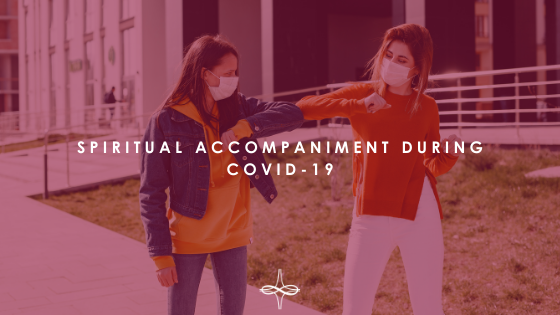







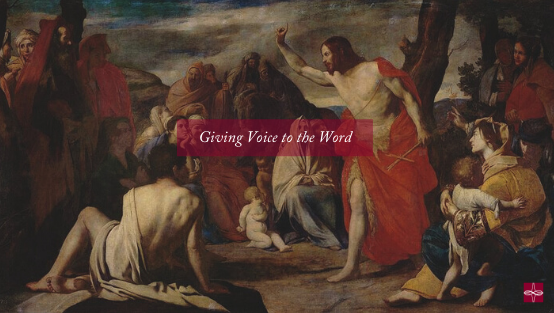



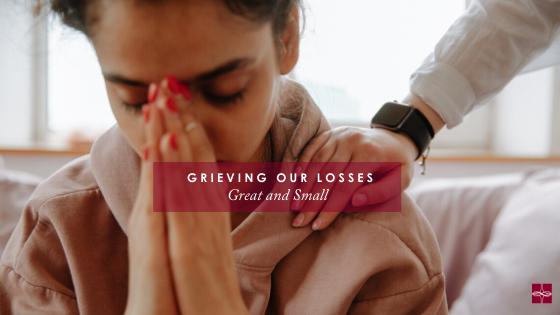
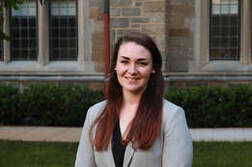
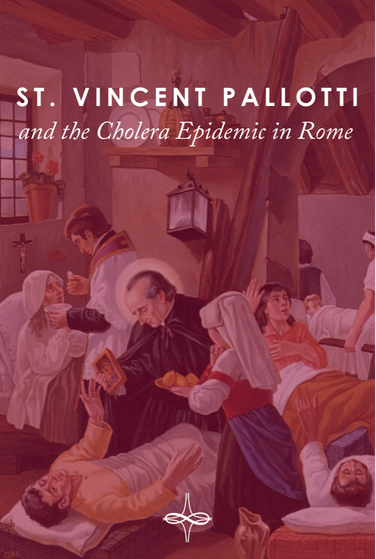



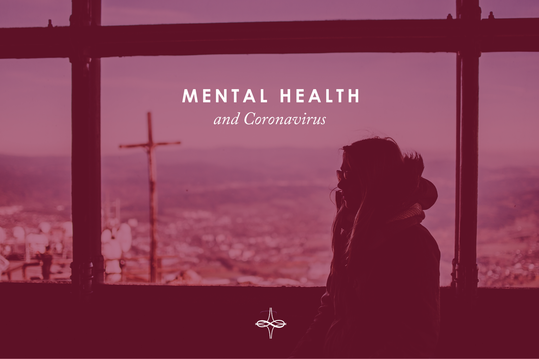

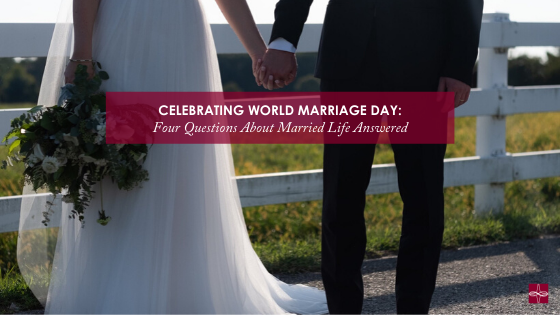


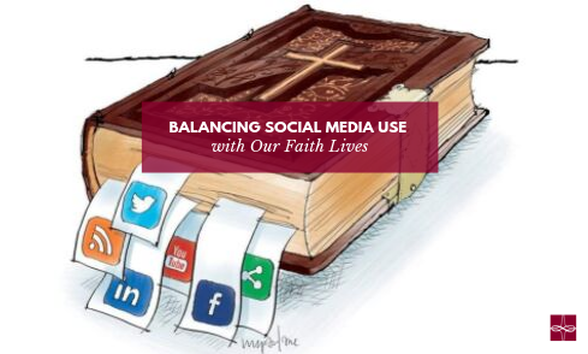

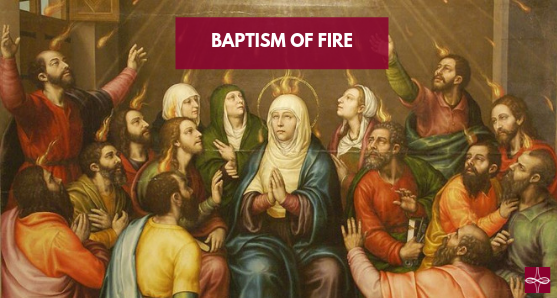

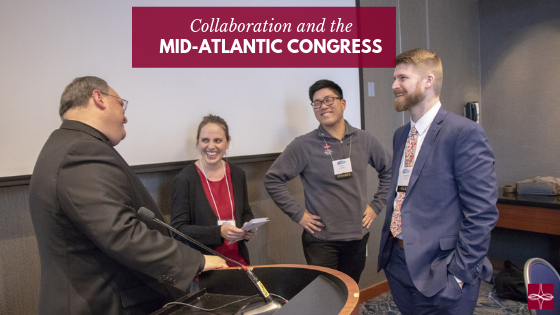

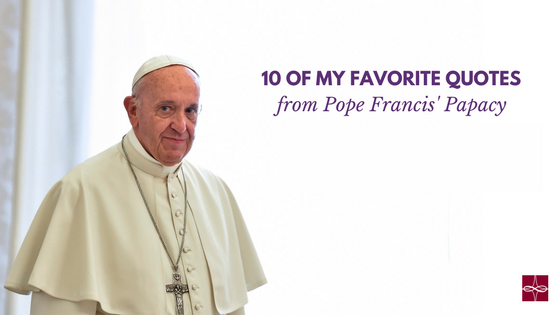

 RSS Feed
RSS Feed